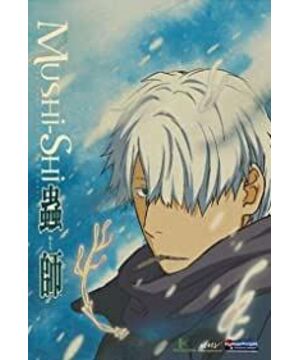The film "Insect Master" fits the Japanese traditional aesthetic culture very well. Although I haven't studied Japanese literature at all, I plan to study it for three minutes from now on. The first key word is "consolation", which represents its value. It can be seen that every story is basically imperfect, and even if the main character dies, there is no meaning to convey impact. When traditional works need to convey impact, there are generally two ways: 1. Detonate information and detonate emotions. That is to hide some information in the previous narrative and explain it to the reader at a critical moment. 2. Use artistic language to extend the reader's perception time, so that the reader is fully immersed in emotion. "Consolation" acts on oneself and others at the same time, acting on the subject and object of the story. Yingu-san is really too Asiatic, he tolerates strange human nature, and does far more than unilaterally "save" others. In a sense, the object of "salvation" is the high-ranking person. While the lonely souls in the world are struggling (this word seems to be a bit derogatory, it is struggle anyway), they will interact and reverberate. This reverberation does have an instructive meaning for oneself and others, and more importantly to tell the world and oneself: "I am here". The second is "Sorrow". "Material sorrow" is reflected in staying away from politics and moral preaching and getting close to nature. The background of the story is completely out of the times and out of the city, with lush mountains and vast waters. (Then people are poor) If you want to extract the central idea from a single plot, it is not impossible, but it is not necessary (?). The third is "things". I like this word. The objective world and the subjective world are inherently complex, and not everything needs to be clear. (Things with logic are of course also good, the bar is you right) Especially in terms of emotions, if you have been out of human control, you don’t need to forcefully cut the thread, you can directly create an ambiguous feeling, and let the reader and the protagonist tangle together! The conclusion is - if you read traditional Japanese literature but don't understand anything, please don't doubt your IQ because the author doesn't necessarily know what he is writing. ?
like me.
View more about Mushi-Shi reviews











